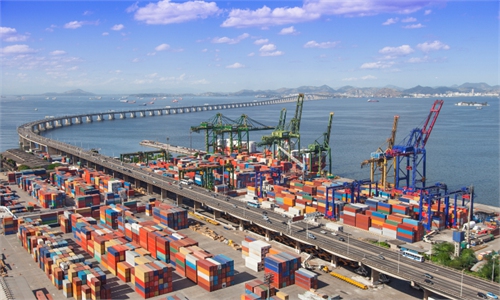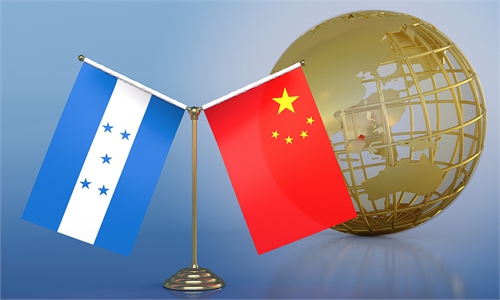US lawmakers' proposed scrutiny of China's IDB role 'another unreasonable crackdown'

Inter-American Development Bank File photo: VCG
Some US lawmakers' proposed scrutiny of China's role in the Inter-American Development Bank (IDB) represents another unreasonable crackdown by Washington on Beijing, observers said, noting that the move, a vivid display of the hegemonic US mindset, will in the end hurt the economic interests of the vast Latin American nations.
They further noted that China's investment and trade cooperation with Latin America has produced real benefits and is based on mutual respect and equality, a stark contrast to the US, which is "all mouth and no action."
The comments followed a report by the Associated Press, which said that some US lawmakers are pushing the Treasury Department to help curb the outsized role of China at the IDB - a bank that supports economic and social development in Latin America and Caribbean.
The bipartisan group of lawmakers claimed that Beijing is using the bank as a tool to expand its influence in the region, but offered no proof. Moreover, they want the US, which holds the largest say in the bank, to do more to rein in the awarding of projects to Chinese firms and to block Chinese attempts to acquire more shares at the bank.
China's shareholding in the IDB is less than 1 percent - far less than 30 percent of the US.
It is not surprising that the US lawmakers made such unreasonable proposals especially as Washington has intensified its unreasonable containment of Beijing, Wu Hongying, director of the Institute of Regional and International Studies at Hubei University, told the Global Times on Wednesday.
"The crackdown is becoming 'more targeted,' with Latin America as one of its focus areas amid booming China-Latin America trade ties," Wu said.
There is a solid cooperation foundation between China and Latin America. As of 2022, China was Latin America's second-largest trading partner overall and the largest trading partner of nine individual countries in the region - Cuba, Paraguay, Argentina, Chile, Brazil, Uruguay, Peru, Bolivia and Venezuela, according to statistics from China's General Administration of Customs (GAC).
GAC data showed that even amid the COVID-19 pandemic, China-Latin America trade showed great resilience, rising to $450 billion in 2021 and setting a new high of $485.8 billion in 2022. Bilateral trade has increased 40 folds since 2000.
Since nations in the region were greatly affected by the economic downturn due to the pandemic and other reasons, Chinese investment itself is urgently demanded and beneficial, Wu noted.
The US has long sought to increase its influence over Latin American nations like Argentina. However, those countries haven't been able to achieve the political stability and economic development they have long desired.
Now as the US shifts to a protectionist posture, trade development opportunities for Latin America have been further eroded. Some countries are even facing multiple crises due to the US Federal Reserve's irresponsible monetary policy, experts said.
"As the US itself failed to inject any positivity into the region's economy, it even threatened to drive China away, which is no doubt a blow to the Latin American economy," Wu said.
China formally joined the IDB in January 2009, becoming its 48th member nation. According to a press release posted on the official website of the IDB on January 12, 2009, the entry of China took place at a time when the IDB was "striving to assist its borrowing member countries to deal with the impact of the global financial crisis."



